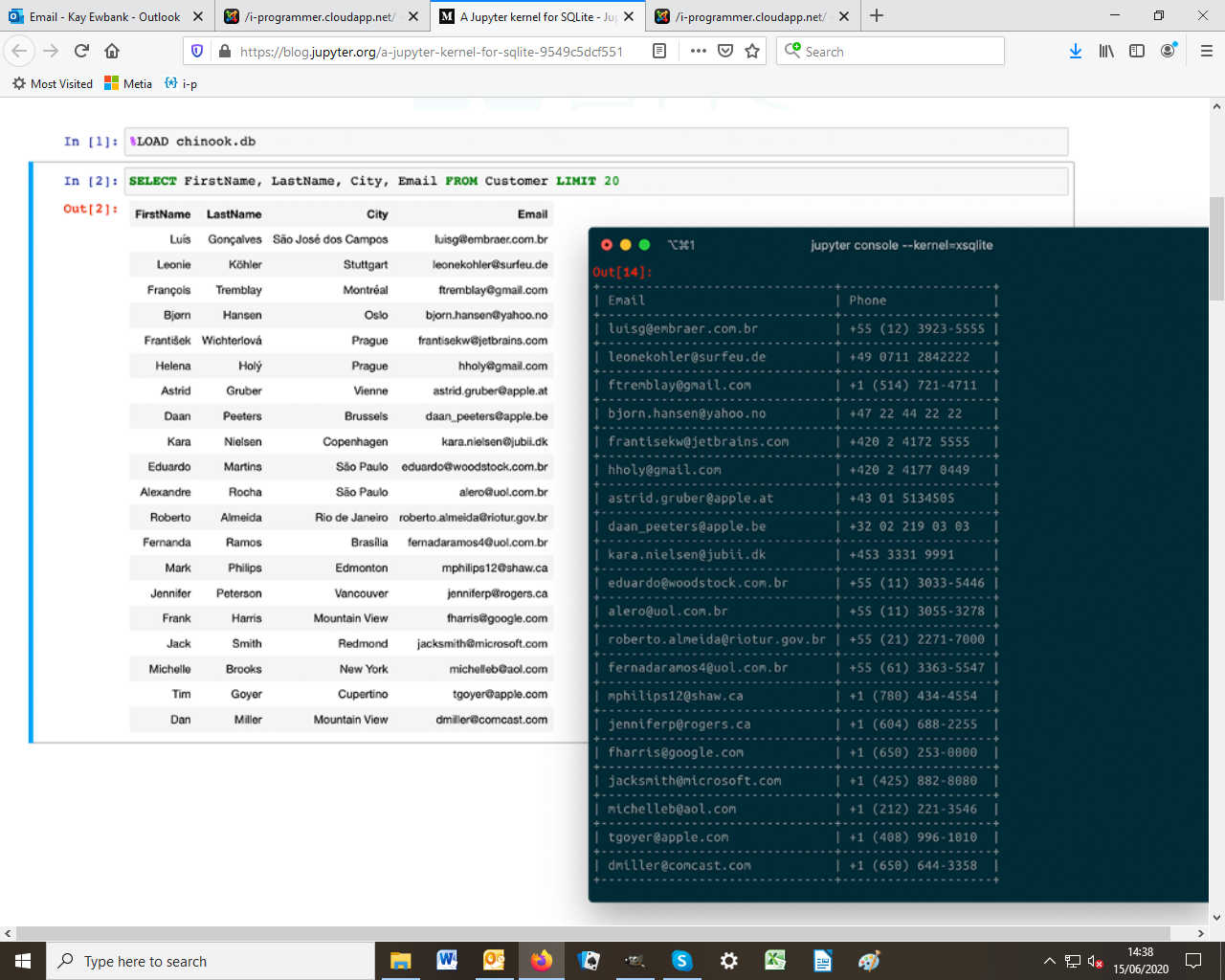| SQLite Gets Jupyter Kernel |
| Written by Kay Ewbank | |||
| Monday, 15 June 2020 | |||
|
The SQLite team has announced a Jupyter kernel for SQLite. The new kernel adds the ability to use SQL for data science work within Jupyter notebooks. It supports the complete SQLite syntax as well as some extra operations such as opening or closing a database file, or visualizing the data in different ways using Jupyter magics. While it is usually seen as an open-source web application that allows you to create and share documents that contain live code, equations, visualizations and explanatory text, the SQLite developers point out that it is in fact a language-agnostic development environment, with high-quality language kernels for the main languages of data sciences, such as Python, C++, R or Julia. This new release adds the ability to use the SQL family of programming languages. SQLite is an in-process library that implements a self-contained, serverless, transactional SQL database engine. It supports full text search and has extensions offering JSON support. The entire SQL database with multiple tables, indexes, triggers, and views, is contained in a single disk file. The developers say SQLite is the most used database engine in the world, as it is built into all mobile phones, major web browsers and most operating systems. The new kernel is based on Xeus, a library providing an implementation of the Jupyter kernel protocol, and the connection between SQLite’s native C implementation and C++ is made using SRombauts’ library SQLiteCpp. The developers describe xeus-SQLite as "still under active development" but say it offers a fully functional SQLite interface and magics to perform higher-level operations that are outside of the scope of the SQL syntax, such as creating, opening, or closing SQLite databases.
xeus-SQLite provides rich HTML display of tables in the Jupyter Notebook and Jupyter Lab. Future plans for the kernel include the ability to create plots, graphs, charts and maps from your SQLite query results, all in the same notebook. The developers are currently exploring the use of Vega in xeus-SQLite, a declarative language for creating interactive visualization designs and can do bar plots using jupyter magics. There's a trial version of SQLite kernel for Jupyter that doesn't require anything to be installed locally here.
More InformationRelated ArticlesJupyter Notebook 5 Adds Cell Tagging Jupyter 4 Completed By Release Of IPython 4 SQLite 3.20 Improves Query Planner SQLite 3.17 Adds SHA1 Extensions SQLite 3.16 Adds Pragma Functions SQLite 3.15 Adds Row Value Support Portable Version Of DB Browser For SQLite LiteCLI - SQLite Client with Autocomplete
To be informed about new articles on I Programmer, sign up for our weekly newsletter, subscribe to the RSS feed and follow us on Twitter, Facebook or Linkedin.
Comments
or email your comment to: comments@i-programmer.info |



